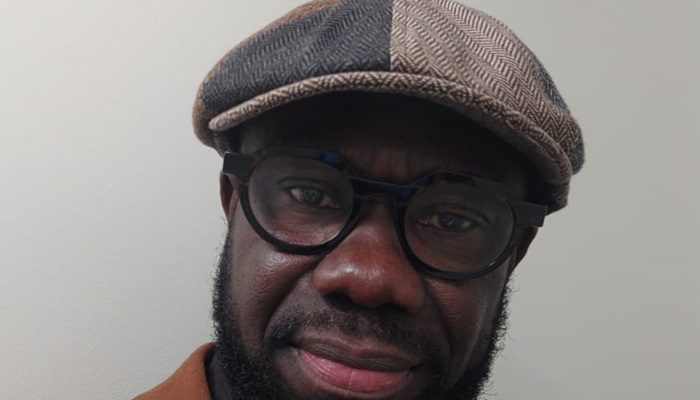Nigerian films are for Nigerians first, Ghanaians second, and other thieves
By KWESI TAWIAH-BENJAMIN
I do not seek to ingratiate myself with spirits the world yonder.
I made my peace with Ekow Blankson before the curtains fell on his extraordinary career.
His huge and towering frame filled the stage when he masterfully delivered his lines in a way that seemed effortless, yet effortful.
He owned his craft and I admired him.
We spoke Fante any time our paths crossed. I worried I was never able to tell him how great he was until I watched Othello in London a few years after we left Legon.
Broken hallelujah
The lanky man who played Iago at the Globe Theatre in London, reduced acting to a sad tale told by a hopeless abecedarian; a novice from nowhere.
I had watched Ekow’s turbocharged portrayal of Iago in Legon; he was unstoppable.
Prof Martin Owusu had hailed him most profusely in class. After the Globe show, I telephoned Ekow to complain about the worst actor I just encountered.
That was when I made my peace: I told him he was the best in the game.
A week after my telephone call, Ekow died. At 50.
I have since watched Othello on three continents, and nobody does Iago better than Ekow.
If the theatre had a Fante name, call it Ekow Blankson.
Have you watched Bimbo Ademoye lately? Like Ekow, Lydia Forson, and other fine Ghanaian talents, Bimbo brings unusual grace and deference to the set.
She is one of Nigeria’s fast rising movie stars and producers who is respected in the industry for managing her private space without incident.
You see, even Shakespeare missed it in Twelfth Night when he told us: “Some are born great, some achieve greatness, and some have greatness thrust upon them”.
There is another kind of greatness, a fourth place, where the creatives sit.
Creative minds don’t seek greatness; they create greatness and perform it to those who are chasing after greatness.
I just finished watching Broken Hallelujah, Bimbo’s latest work. You wonder why it is not on Netflix.
I can only sum up my impressions of the film in one big word: Sprezzatura.
That is what you say when somebody deploys uncommon finesse to do something so well that you wonder whether anybody could have done it any better.
Like most dramas, the conflict at heart of the plot of Broken Hallelujah is relatable, almost commonplace, and yet treated in a way that transports the simple tale of a couple struggling to have a baby, to a surreal place of acting wonder and cinematic glory. There is nothing missing in the story; it checks all the boxes of the fastidious film critic.
In the end, you go away with some timeless truths: “The same way broken crayons still colour, a broken hallelujah still carries praise”.
Thumbnails and stealing nails
In a week, the film garnered more than 5 million views on YouTube, increasing Bimbo’s subscriber base beyond 1Million. Yet, Bimbo thinks something is broken about how her movies are consumed.
Last week, the celebrated actress raised grave concerns about copyright theft, setting her wild gaze on television stations in Ghana that are showing her films without her consent.
Bimbo is not even interested in sharing revenues accruing from her movies with a TV station; she wants absolute ownership of her creative works.
She, however, doesn’t mind when her fans copy her thumbnails on YouTube and splash them on other works, especially if she is in those movies.
But when you copy her movies and show them on TV, you are ‘Ole’ (Yoruba for thief).
There is anonymity in cyberspace, but impersonation is illegal. Bimbo fumes: “It can be tracked; it can be traced. It can be found”.
Movie production is a particularly expensive and difficult enterprise.
From props to casting to housing and feeding actors for months on set, movie producers have often ended up drying the two most important juices in their lives: creative and financial juices.
They borrow money from banks at demonic interest rates and sell off family properties to repay when the movies do not sell.
Uncle Ebo Whyte of Roverman Productions had to sell his car and walk after a failed investment.
A-list actors charge a fortune to show up late on movie sets.
It takes another fortune to promote the movie, and an even greater fortune to buy the patience and fortitude required to prick and sustain public interest in the product.
Separating the bad copy
For those who are unchristian enough to watch expensive films for free, think of a finished movie project as a fashionista’s carefully tailored dress displayed in a showroom.
You may admire it but you would not remove it from the manikin to take it home without paying for it.
Filmmakers expect and deserve payment for their hard work, at least as recompense for the untold sacrifices. Actors have died on set or sustained serious injuries.
Only a week ago (10th April), Nigerians celebrated the first anniversary of actor Jnr Pope Odonwodo who drowned in the line of duty when the boat he was filming on collided with a fishing canoe.
In Hollywood, A-lister Alec Baldwin’s gun accidentally killed an actor on set during filming.
This is the price the creatives pay to create pleasure on our screens: Death.
Bimbo has broached an important but difficult subject–on behalf of Nollywood, Ghallywood, Kumawood, Bollywood and Hollywood. Another Nigerian actress and scriptwriter, Omoni Oboli, had raised the copyright matter only months earlier.
In the midst of the explosion of creative content on free streaming platforms on computers and smartphones, how do we preserve the sanctity of our creative spaces and reward the geniuses behind them?
Ghana’s Minister for Communications, Digital Technology and Innovations, Sam George, and the Executive Secretary of the Ghana Film Authority, Kafui Danku, have promised to look deeply into the evils behind Bimbo’s copyright, to separate the bad copies from the good rights.
Just when we thought the jollof war was over!
Tissues Of The Issues
bigfrontiers@gmail.com
- Cyber-attack: MTN urges customers to strengthen security - 28 April 2025
- Asante-Asiedu appointed Second Deputy Governor of BoG - 28 April 2025
- Nigerian films are for Nigerians first, Ghanaians second, and other thieves - 28 April 2025




